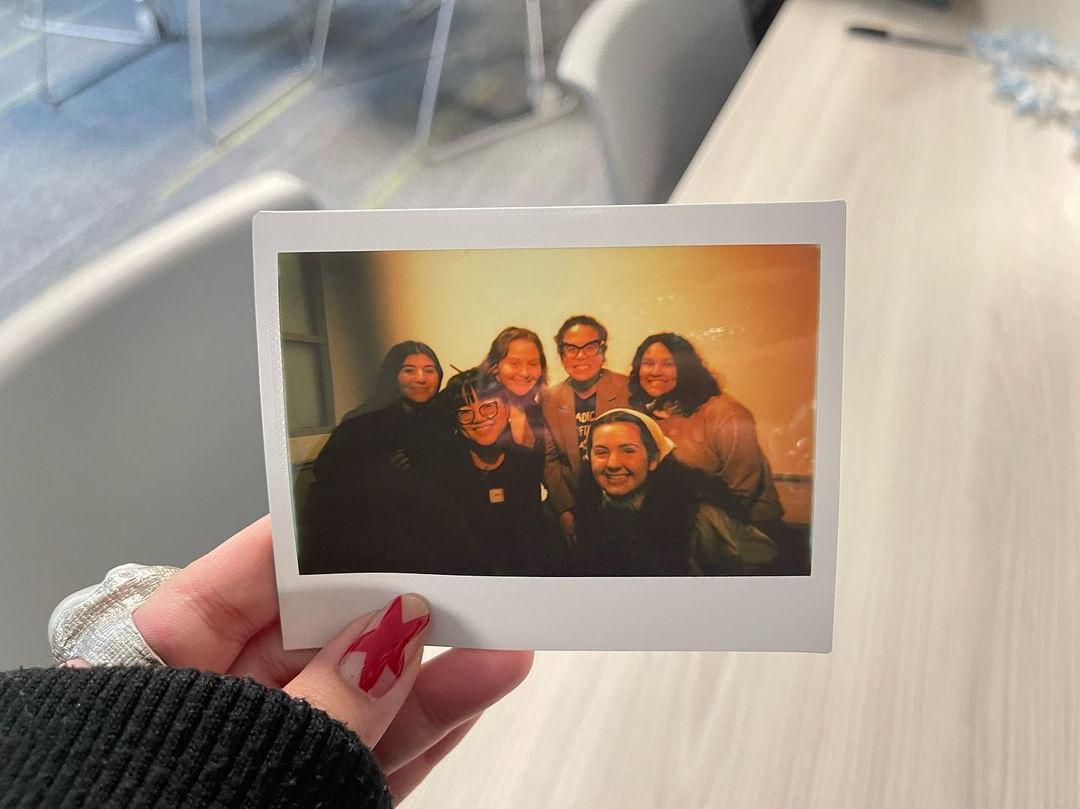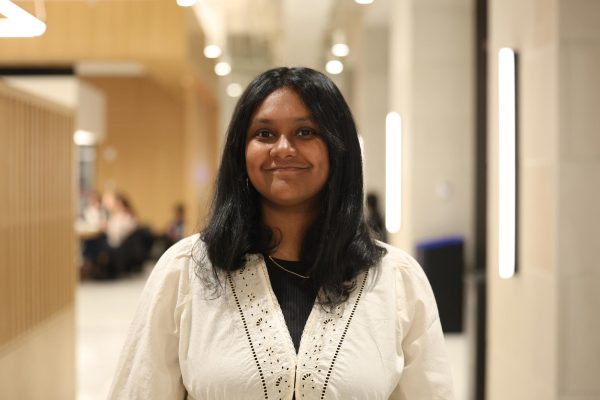On Sunday, April 8, the Poetic Justice Institute hosted “Books and Brunch: A Reading Party,” an event for Fordham University undergraduates and English students to read and brunch together in the style of a reading party. The event hosted roughly 20 attendees and was held at Lincoln Center. It was largely organized by Sarah Gambito, co-director of the Poetic Justice Institute and director of creative writing at Fordham.
The Poetic Justice Institute was founded in 1992 at Fordham’s Lincoln Center, initially as Poets Out Loud, which hosted and continues to host speaker series with renowned artists such as Gwendolyn Brooks and Elizabeth Alexander. Their inspiration for a reading party came from the New York Times article “It’s My Party and I’ll Read If I Want To,” which details the Reading Rhythms series at FourFiveSix bar in Williamsburg, Brooklyn. Attendees at FourFiveSix committed an hour to reading their books before discussing them with others in attendance.
“I was talking to Yev [Gelman], my assistant, and we were really thinking about how do we think about where students are at right now, what they might need, what does it mean to hold space right now – late in the spring semester,” explained Gambito.
“I was reading about all these reading parties, and I just loved the idea of reading being a celebration. Of looking at reading both solitary but communal and bringing people together, students together, with the books that they love and they’re choosing.”
The Poetic Justice Institute hosted the event in Lincoln Center, a large meeting room filled with several tables, each adorned with a floral garland. A beach scene was projected onto the back wall. Light bossa nova filled the air as participants filed in with tickets in hand, wrote on name tags and began to take their seats. Filling most of the left wall was a large brunch spread of frittatas, pancakes and breakfast burritos.
“I heard about this event from my poetry professor, Sarah Gambito.” explained Joy Tessalee, FCLC ’24. “Why did I decide to attend?… Books? Brunch? I was sold.”
Attendees took their seats and began to speak with others at their table. Many were English majors themselves, and many were also invited through English classes they were currently taking. Books — ranging from “Carrie” by Stephen King to “Devotions” by Mary Oliver — were laid on the table, subjects of brief show and tell over eggs and bacon. After a while, Gambito directed attendees to put their forks down and begin their first reading period.
After a short period of silent reading, Gambito encouraged attendees to find someone in the room they hadn’t met before. Yev Gelman, a Poetic Justice Institute fellow, then provided a prompt for discussion. The once-silent room grew with conversation that had to be reined in in order to begin a second reading period.
“I think that the reflection was really important to me,” said Gambito. “I wanted people to recognize this was really special. You stepped away from your outside life and you walked with each other into your books and towards each other.”
In these breaks for conversation, books, faces and stories came to light. Books in attendance included “Tom Lake” by Ann Pritchett, “The Atlas Six” by Olive Blake and “All About Love” by bell hooks. During breaks, many students ventured to the back where they could get a Polaroid picture taken with a multicolored light — a small keepsake to remember their afternoon.
“I bought Mary Oliver’s Devotions. Mary Oliver once wrote “Sometimes I need / only to stand / wherever I am / to be blessed.” I was so blessed to stand among a room of creatives and lovers of literature. That was probably my favorite part. (Although the tiny bottles of tabasco were a close second)” reflected Tessalee.
Going forward, Gambito hopes to expand these events as recurring spaces for students to engage in.
“It’s all about relationship building. My hope is that students begin to realize that the English Department is attuned to them and these are events they’ll want to go to.”
The Poetic Justice Institute hosts a variety of conversations on current poetic issues and keynote speakers. A list of upcoming offerings can be found on the Poetic Justice Institute’s website.









































































































































































































